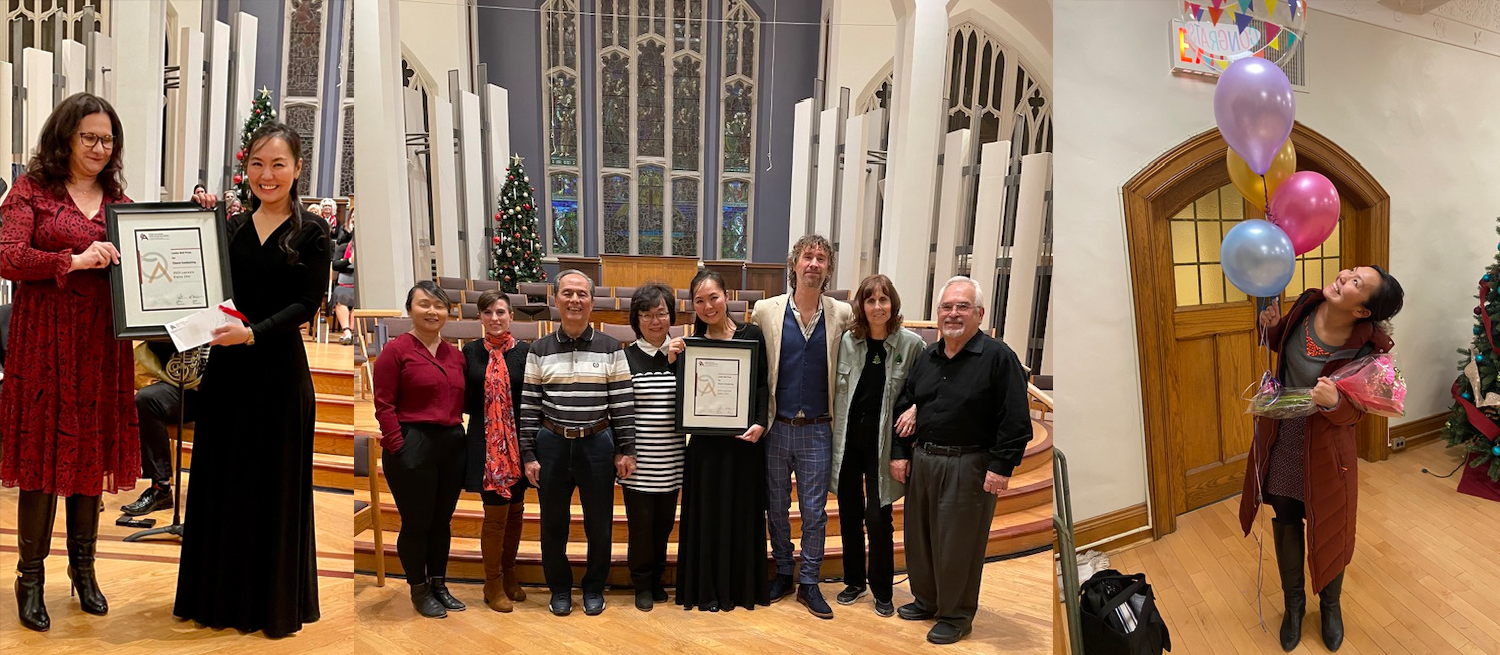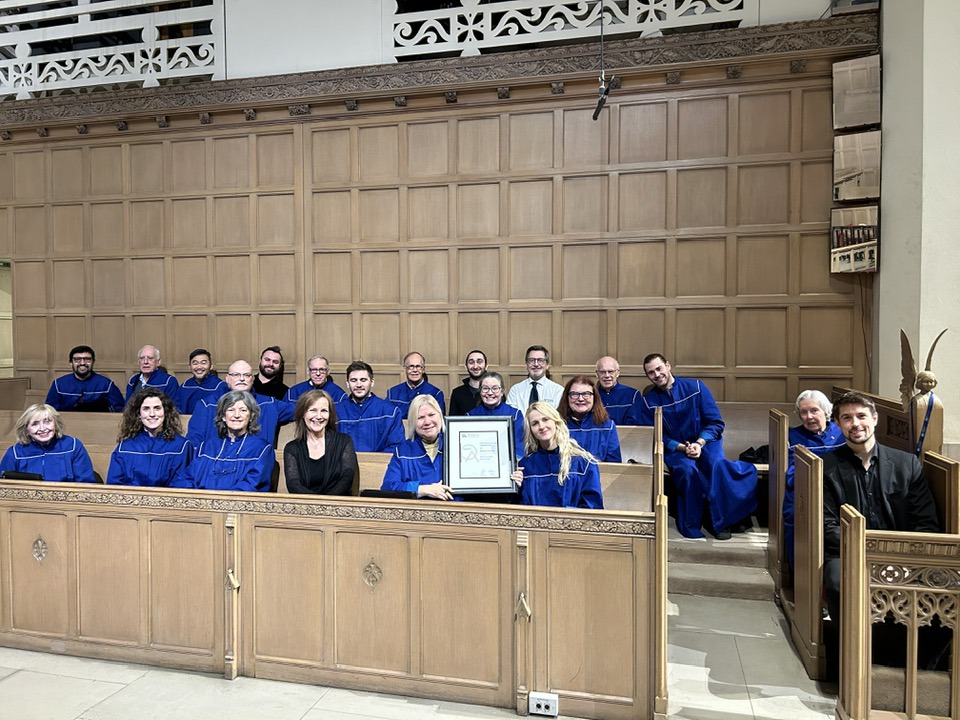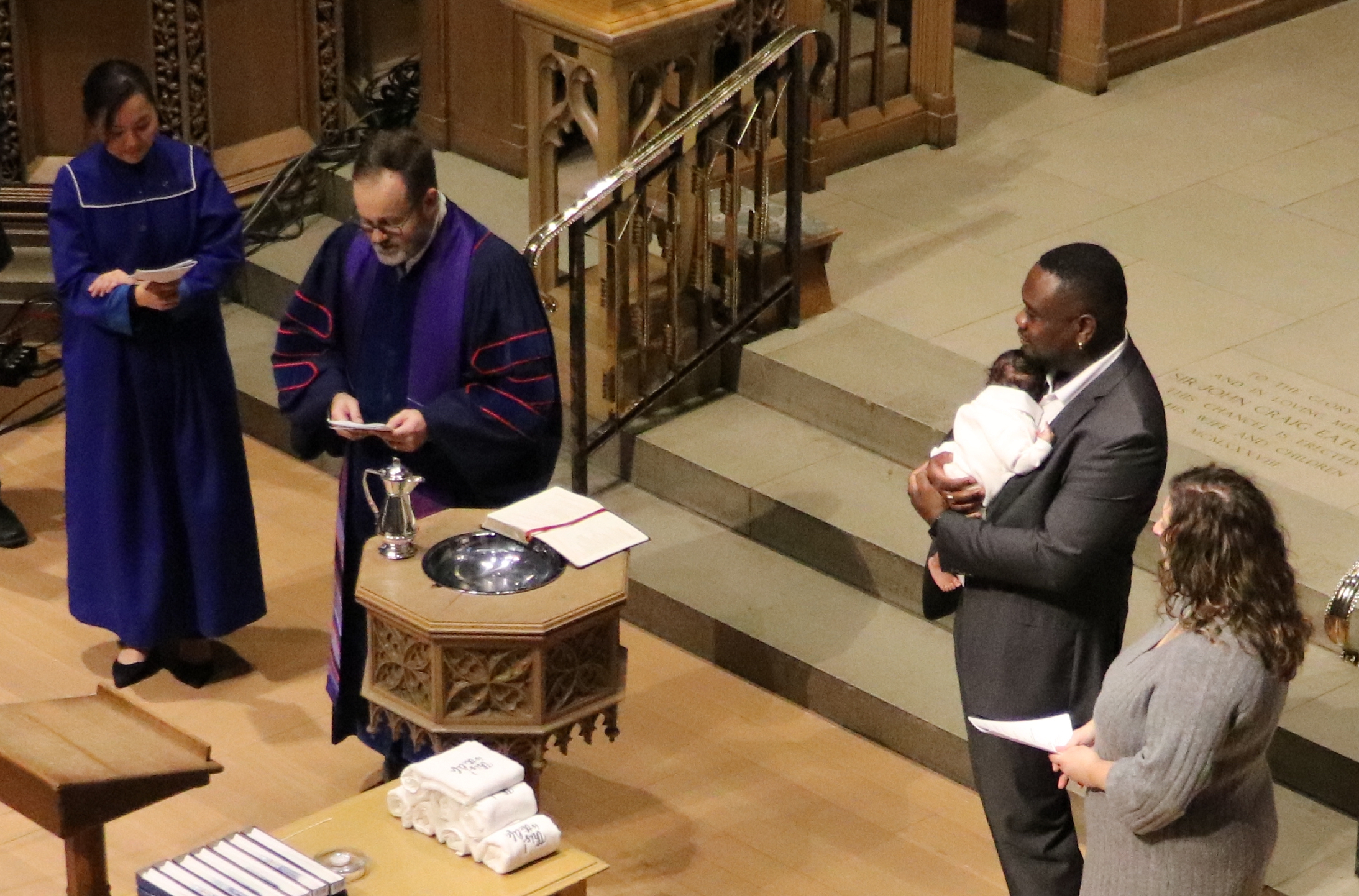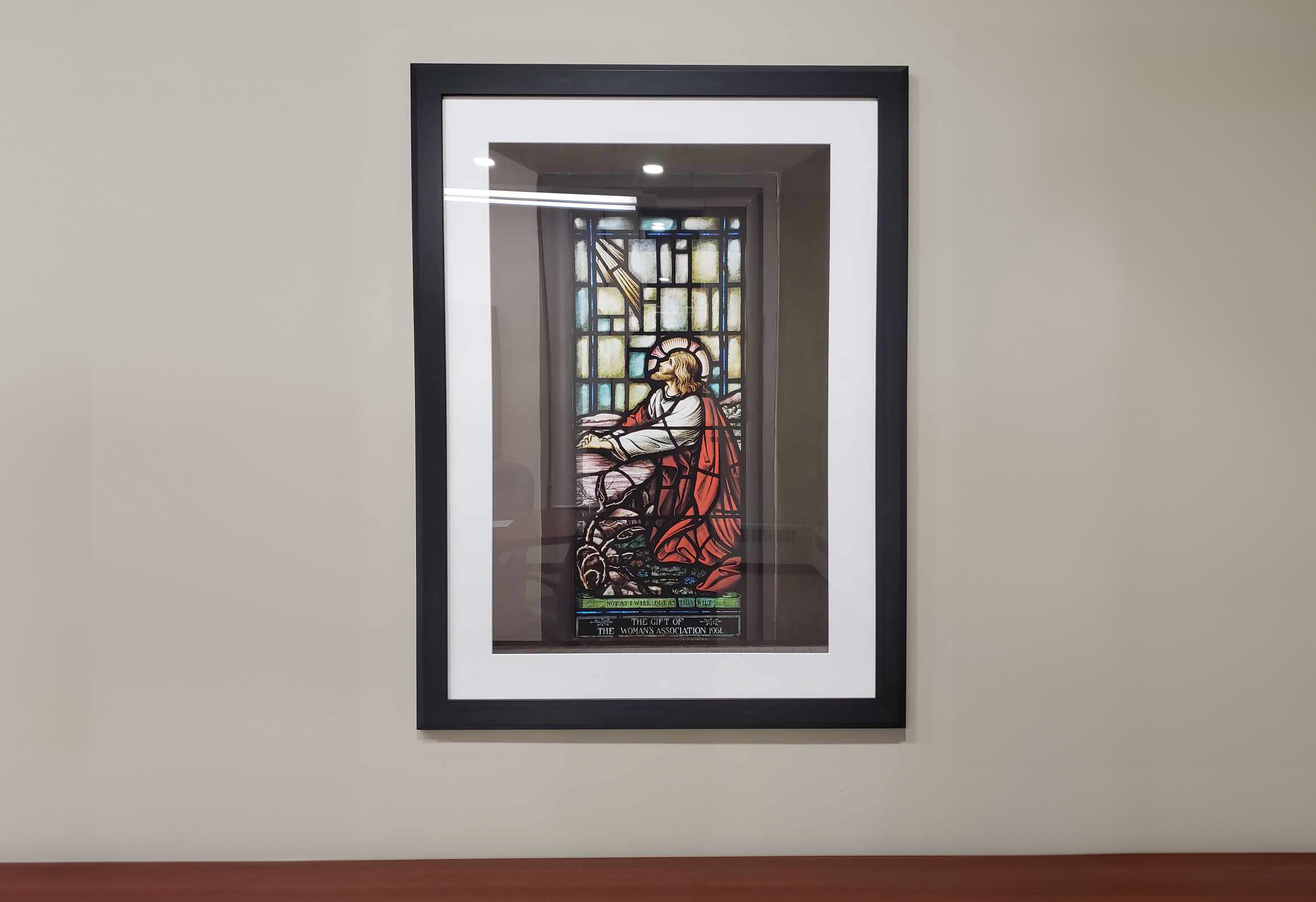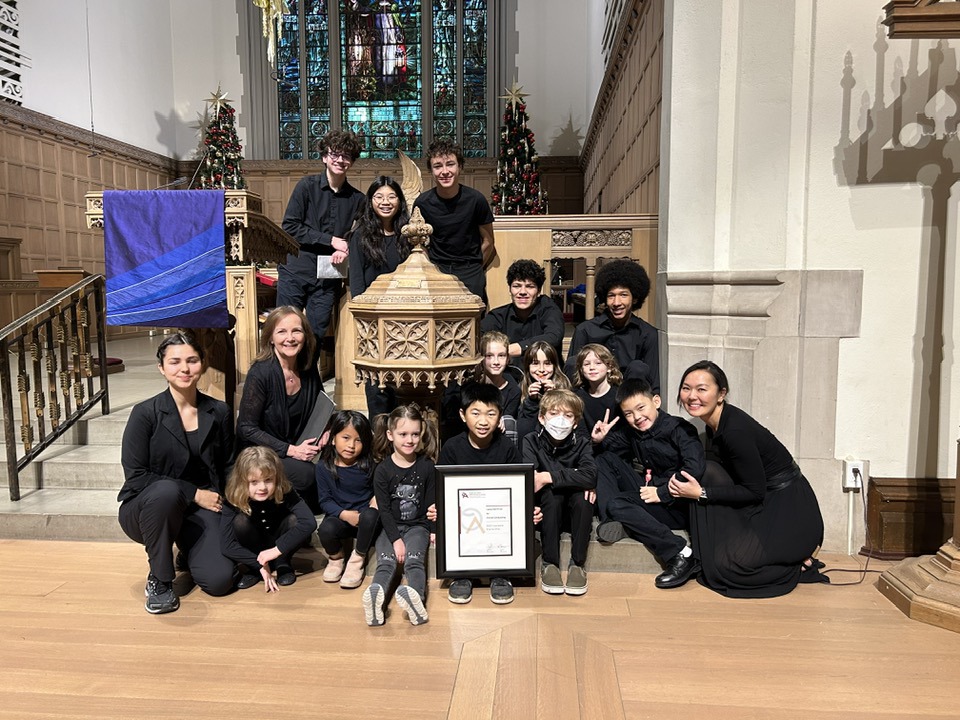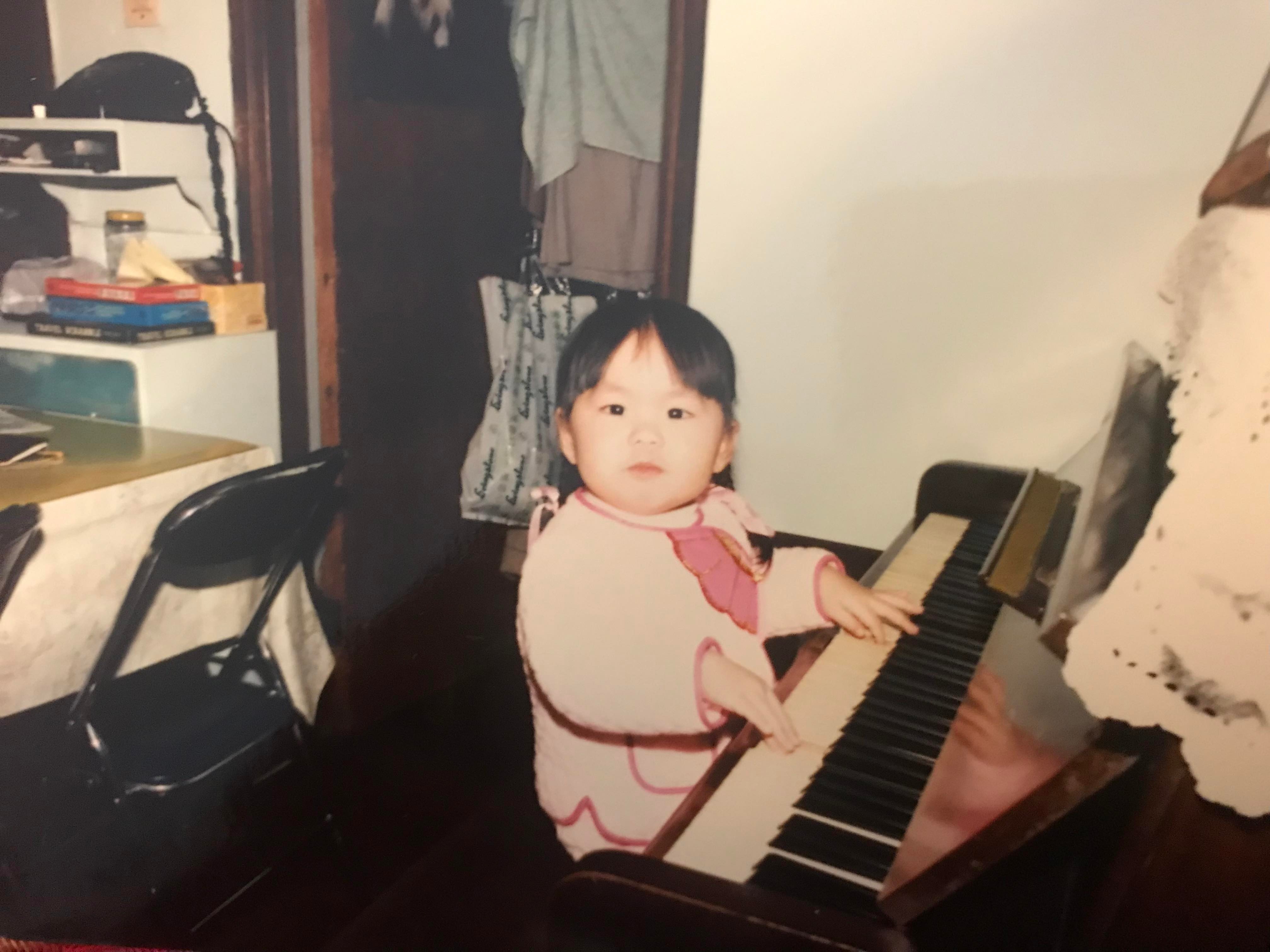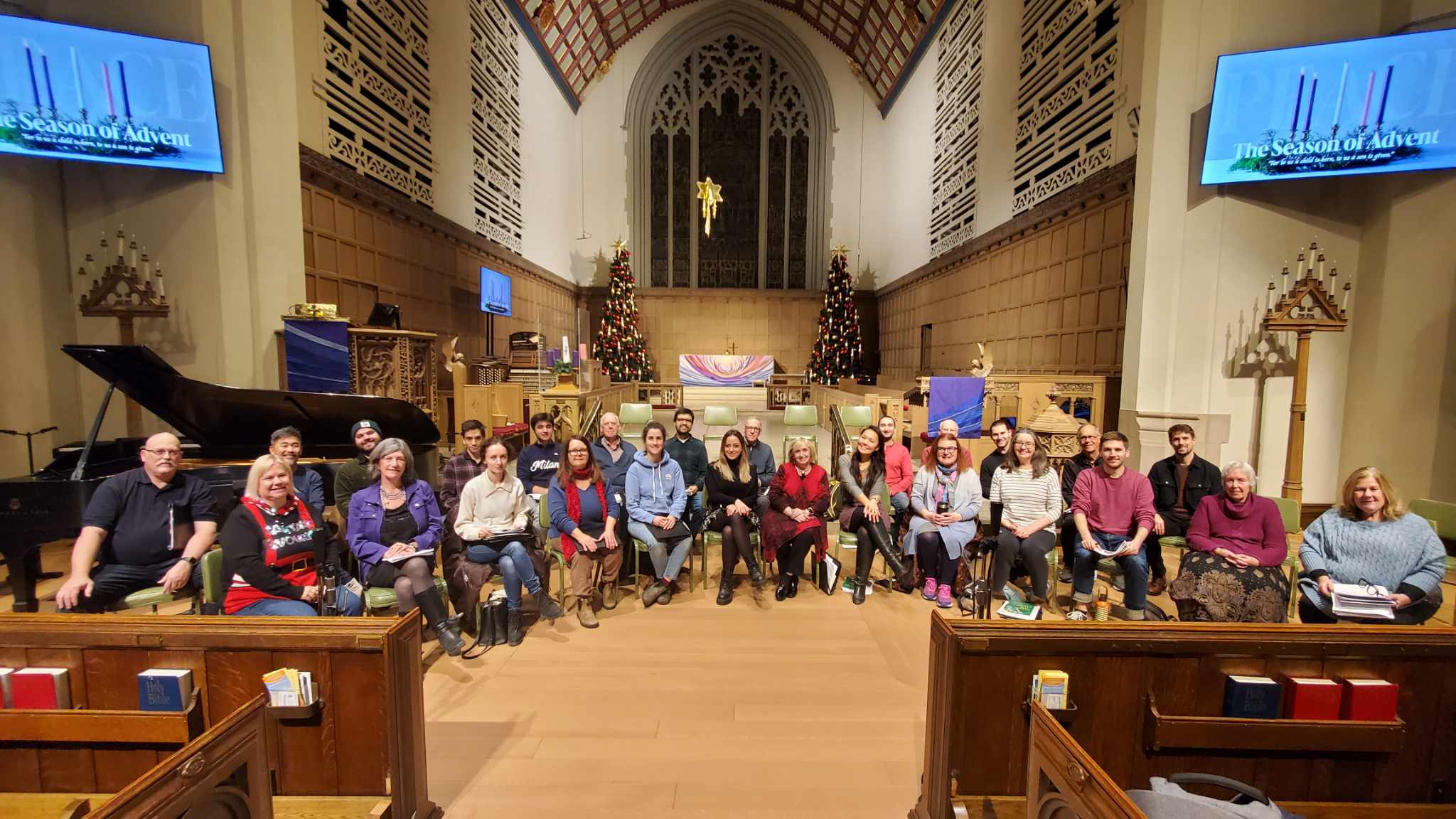An interview by Rev. Dr. Jason Byassee with Dr. Elaine Choi, Director of Music at TEMC.
Tell us about the Leslie Bell Prize for Choral Conducting, which you’ve just won?
It’s the one conducting prize that most Canadian choral conductors would know. It’s a list I’ve aspired to be on. There are a lot of conductors deserving of the award. It’s only given every two years, and this time it hasn’t been awarded for five years. So just being nominated was a big honour. The other nominees are such deserving colleagues.
You often say ‘without a choir there is no conductor’
I’ve always been a collaborative music-maker. Even when I was little, I dreaded playing solo. In the university, most students considered “really good” go into a performance stream. But I never wanted to be a solo performer. I always wanted to make music with other people: in a duet, a string quartet, with an orchestra or a choir. You can’t even really practice conducting alone. You can’t lock self in a practice room. There is study and library work, but the music has to happen with people. It’s team work!
You were also baptized Sunday. How do you compare winning an award to receiving God’s grace?
I can’t think of better back-to-back events. The award is amazing, but it’s a hard thing to digest. My innate reaction is to deflect praise, to shrink back from it. At the Pax Christi Chorale performance at Eglinton-St. George United Church on Saturday night, some 500 people gave me a standing ovation for 33 seconds. I know this, because a friend recorded it and said they would remind me of it whenever I doubt my work (imposter syndrome is strong at times!). I’m very honoured, but don’t know how to feel about it.
Getting baptized reaffirms how grateful I am. God has given me a gift. Much of my music feels innate. But I have taken that gift and lived to serve people with it. Baptism was a reaffirming thing to do, to keep me grounded and balanced, give me opportunity to express my gratitude. It brings me down to earth.
Tell us about being asked by Marie and Andrew Adridge to be godmother to their baby Connie, with whom you were baptized?
I can’t wait to see how meaningful it will be as he grows. I knew Andrew when he was an undergrad while I was doing my doctorate, so I saw him grow up from when he was 18 years old. Marie was also in the faculty of music. Now he’s a father. They asked me to be Connie’s godmother because they saw my work at TEMC and my relationship with the teenagers here. Marie said they want Connie to have the same “reflective stance” in his faith that they see in me, and want my help fostering that in him.
On Sunday when I was waiting for my turn at the kneeler, I saw several of our teens up in the balcony, looking at me with so much light. I texted one to ask him to promise only to make people cry happy tears from now on! He responded, “Well of course, Ms. Elaine, we grew up with you.” It felt sort of like that image of Christ there [points to the image in the minister’s outer office].
One of your gifts is creating community, not just music. Talk about that skill.
I don’t think of it as a skill, I’m just treating everyone with respect and cultivating an environment where everyone else does the same. It feels like a safe environment for earnestness and sincerity. I have low tolerance for uncomfortable situations. They’re not productive. Community is based on transparency and positivity. When I detect anything not sailing in a positive way, I work to steer it back on track.
I heard recently part of staying motivated is to be strategic about the relationships around you. Surround yourself with positive people and environments where you can learn and grow. I can learn from everyone and want others to see that. Our paid professional leads need to know they can learn from the volunteers so there’s not a divide there. I learn from our 4 and 5 year-olds who look up to me. These relationships are all mutual.
At Pax you spoke of how your mother taught you music.
In English we say “play” for music and for childlike play, but in Cantonese it’s two different words. In a very traditional way, we say “perform” or “present” your repertoire ” 演奏/表演, but my mom always used the word for childlike “play,” 玩. I had a Simon Says game with four colours, a pitch game, and was obsessed with it, and she encouraged it. She would say “play piano duets, have fun. Do Christmas songs by ear.” We’d go to a music store and she’d say “Go crazy, touch any instrument you want.”
I can probably play “Twinkle” on over 25 instruments. I’ll pick up an instrument like a flute or bassoon (it looks like a big weapon!) and try to figure out the fingering and play with it. That came from my mom, her freedom to let her music flow through her body. I learned a lot of that since I was in her womb.
You combine several cultures in your life: coming from Hong Kong at 18 years old, marrying an Italian-Canadian.
I had a lot of insecurity when first to Canada. I was really afraid to pursue certain careers, like teaching children. I was worried that my accent might rub off on them. It sounds silly to say that now. I love kindergartners, but what if they all go home and pronounce words incorrectly? I’ve learned that no one speaks perfectly! And we’re so lucky to be in a place like Toronto where we can learn from one another, imperfections and all.
This award recognizes my inter-cultural efforts: bringing different languages to choirs, and asking how to be a cultural appreciator and not a cultural appropriator. We’re in Toronto! Knock on your neighbour’s door! If you’re doing a Nigerian Christmas carol, find someone to share their culture, and ask them how to pronounce the words. If you’re doing a Filipino piece, the same applies. They don’t need to be musicians—everyone is excited to share a bit of their culture and to talk about their roots. Every time I bring a culture-bearer to Babεl or TEMC, like Dr. Shireen Abu-Khader (minute 47:30) the first thing they say when they greet the choir is “thank you.” Thank you for taking the effort to learn about our music, about the culture in a direct way. We can travel around the world while being in our own Toronto.
How have your thirteen years at TEMC changed you?
I’ve learned a lot about things you don’t learn in school. No one taught how to budget or how to write contracts! I also have a team now—and have to create a community out of them. A thriving community is one where outside people will ask, “We want to come and sing, when do you have an opening?” I’m not always a good leader. I’m terrible in confrontation. I just cry. But I’m able to recognize potential and create community. It’s like another degree I’ve gotten from here.
I also have such a creative outlet here. It’s like a blank canvas. I can bring anything, and that’s so exciting for me. I’ve never seen a more supportive community in terms of buy-in. TEMC is my playground.
When I graduated with my doctorate in 2018, I asked my teacher and mentor, Dr. Hillary Apfelstadt, where she saw me in the future. She said “TEMC has been a good place for you. It doesn’t stay stagnate. I see you continuing to grow and explore new connections. You did your lecture-recital there in Mandarin in the sanctuary. People love your work. You don’t need to go anywhere.” This is an ever-motivating environment, a place where I can thrive.
The last few years it’s also helped me grow spiritually. I’ve had a journey of dabbling and trying things, but this is a place to bring my spiritual curiosity to a focus. A few folks Sunday asked if I was getting re-baptized. No, baptized, the first time. I don’t know how to read their responses. But I was not embarrassed about it. I thought I would be. That day I was excited to reaffirm that I will continue to live a Christian life. I thought “Ok, I really am a Christian and a proud one.”




